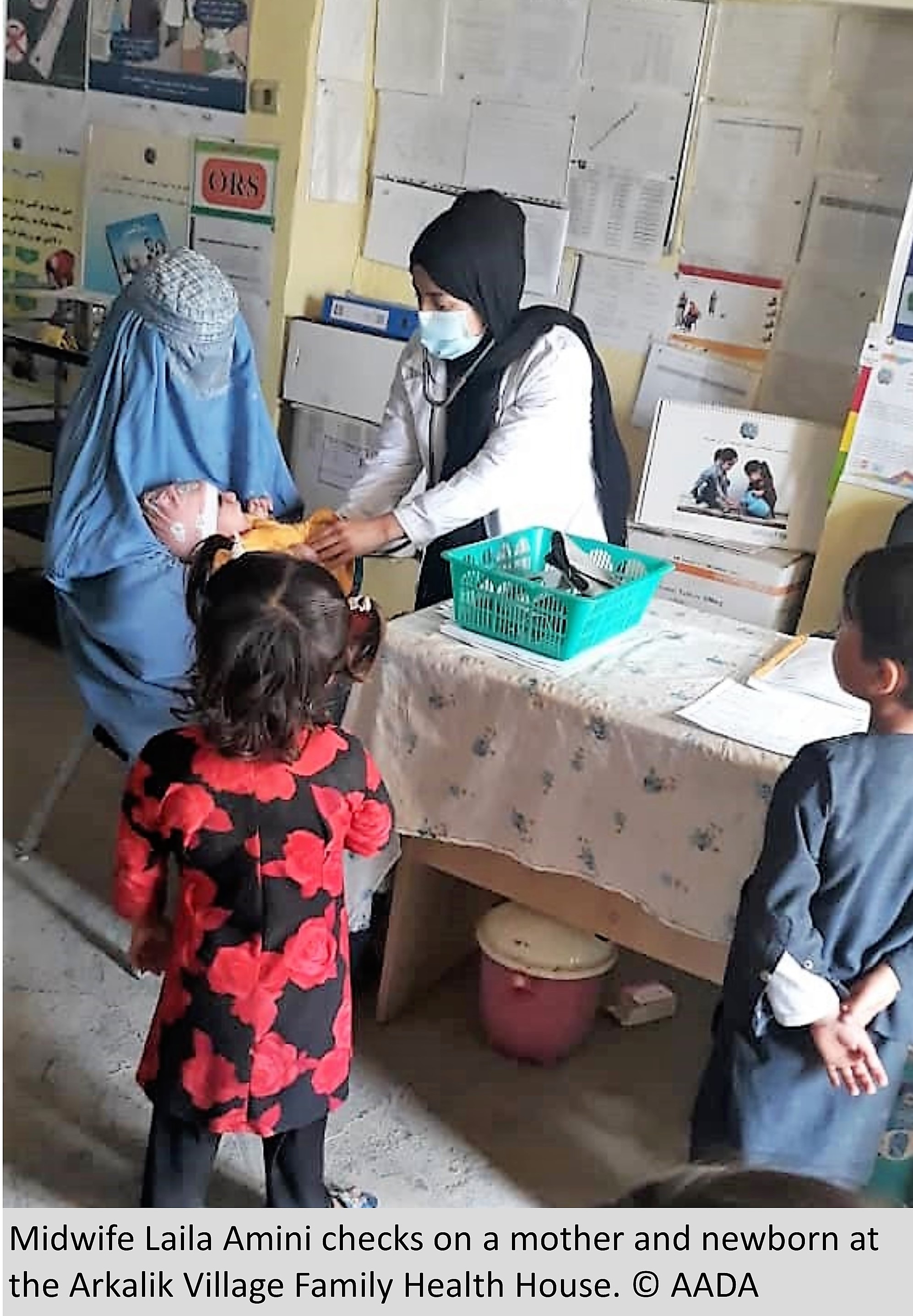Faryab, Afghanistan – It was five years ago during winter when a 17-year-old girl in extreme labor pain was taken to the Family Heal
th House in Arkalik Village in a wheelbarrow. She was about to give birth to her first child. Unfortunately, the young girl died soon after reaching the clinic due to complications that could have been prevented had she reached the FHH earlier.
Laila Amini, the midwife who attended to the girl, was upset that she could not do more to save the mother and baby. But that was the last maternal death she had in her clinic as the young mother’s death triggered the community to take action to prevent the same incident from happening again.
The people worked together to ensure the availability of two cars that can be immediately mobilized for pregnant women who need urgent care. The villagers contribute to pay for the transport rental.
The community also recognized the importance of having the midwife and the FHH in the village. “As we worked together to ensure that no maternal deaths will happen again in the village, the community also found my work very critical and they value the services provided in the FHH,” Ms. Amini said. “This clinic may be small but it has a big contribution on the health of women in this village.”
Ms. Amini has been working at the FHH in Arkalik Village, district of Qaisar, since 2013 – the year after the United Nations Population Fund started implementing the FHHs in Faryab province. The FHHs are community-based health facilities managed by a midwife from the same community to provide essential life-saving reproductive, maternal, newborn and child health services in underserved areas.
The FHH in Arkalik Village was initially intended to serve up to 300 patients per month from Arkalik Village. But now, women and their children from five nearby villages are also coming to the FHH for medical services. As a result, Ms. Amini attends to about 700 patients per month and has to be on call 24/7 for any emergency as the nearest hospital is an hour’s drive away.
There are currently 172 Family Health Houses supported by UNFPA across Afghanistan, with 32 in Faryab. The FHHs have become an integral support to the Afghan health system, which suffered considerably with the withdrawal of development assistance after August 2021.
This is why scaling up and strengthening existing FHHs is one of the priority areas of support for the Special Trust Fund for Afghanistan (STFA). The scale up plan involves expanding the number of the FHHs from the current 172 to 1,500. Existing FHHs, such as the 32 facilities in Faryab province, are also receiving support from STFA to sustain their operations and continue serving the people in their catchment areas. Under the plan, 10 more FHHs will be built in Faryab.
Ms. Amini hopes that she can keep her record of zero maternal deaths. “We haven’t had maternal deaths here since that unfortunate day five years ago,” she said. “The zero maternal deaths represent the success of my work and this is an inspiration for me.”
Equally proud of her achievement is her father. “My father feels honored every time people in our community approach him to expresses appreciation for his decision to support my education so I can be a midwife,” Ms. Amini shared.



